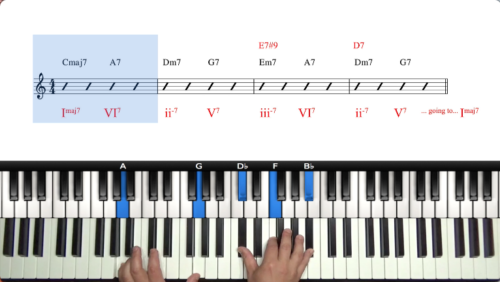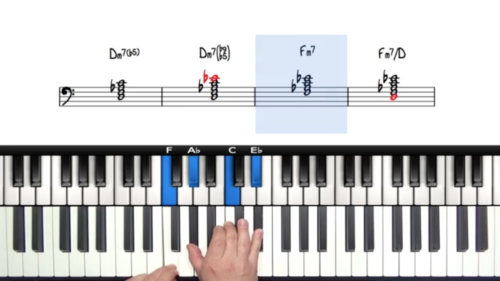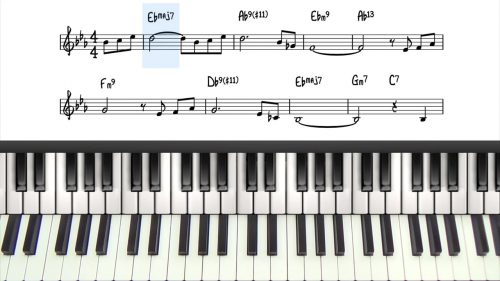Every Time We Say Goodbye Tutorial
In this lesson, we’re going to create a solo piano arrangement of Cole Porter tune ‘Ev’ry Time We Say Goodbye’. This song is played in many different keys, but we’re going to cover it in the original key Eb, also adding the verse into the arrangement.
If you’re not familiar with a term verse, it is an introduction to the tune, both musically, and lyrically. Almost all the Broadway/movie tunes contain a verse, and they are definitely worth checking out.
Notable Recordings To Listen To
There are plenty of great versions to check out, from old ones like Benny Goodman to new, like Fred Hersch and Mulgrew Miller. It’s important to point out that when learning a new song you should listen to as many vocal versions as possible.
Check out for example Ella’s version, also Chet Baker, and one of my personal favorites Cecil McLorin Salvant video from youtube. It’s also a good exercise to sing and learn the melody, and also you will get familiar with the lyrics.
Practice Tips
-
The 1625 progression can be a useful device to transfer from the verse to the head of the tune.
-
Check out the related lessons where they are multiple applications of 1625 progressions.
-
The 1625 can also be used to develop intros and outros. This is useful to extend the length of your performances.







What a great lesson Tuomo!
Such a beautifully arranged piece. I’m trying to download the transcription. Is it not available? I really enjoy your teaching stye, thank you and all of the Piano Groove staff for your dedication to the jazz form, your the best.
Hey Joseph,
I’m glad you enjoyed the lesson.
Yes please see the ‘Downloads’ section of this page, the second file in the list is the PDF transcription download.
Let me know if I can help further.
Cheers,
Hayden
I’ve been learning this tune over the past month. Thanks for the video Tuomo. I find it interesting that the phrase “major to minor” in the lyrics is accompanied by two chords from minor (Abm7) to major (Db7) yet the total mood of the phrase remains minor throughout. Good lesson.